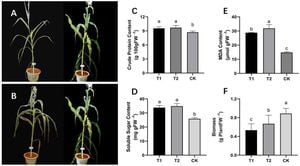With the summer Upper House elections approaching, the nomination process for candidates has been heating up, particularly within the merged electoral district of Tottori and Shimane. The Liberal Democratic Party (LDP) has found itself grappling with significant decisions, especially concerning candidate nominations for both the district and proportional representation slots.
On January 24, discussions took place between the LDP branches of Tottori and Shimane at a closed meeting held in Yonago City. The meeting was convened to address the nominations for the 'specific proportional representation slots' and the general constituency candidates, which have yet to be finalized.
Shigeru Sonoyama, Secretary-General of the LDP's Shimane prefectural branch, expressed the party's commitment to resolving these pivotal decisions. "We aim to have discussions with the Tottori branch and finalize who will be our candidates for the 'specific proportional representation' and 'constituency' slots by February 7," he stated.
The need for clarity arises from the unique structure of the party’s candidate nominations. Previously elected member Yasushi Miura from Shimane announced he would not seek re-election under the party's policy limiting candidacies for 'specific slots' to once. On the other hand, the Tottori side proposed to nominate Shoji Maitate, who won his constituency seat six years ago, for the 'specific' slot, indicating the complexity of aligning strategies between the two regions.
During the recent discussions, it was also agreed to have both Tottori and Shimane branches pursuing their candidates under one umbrella, instead of staying aligned separately. This unity would enable broader representation and activities across the two prefectures.
"If we limit the activities to just the prefecture where the candidate is elected, their influence would inevitably narrow. By representing both prefectures, candidates can maintain active engagement within both communities," remarked Masakazu Saiki, Secretary-General of LDP's Tottori branch.
Meanwhile, the opposition parties are also gearing up for the elections. The Japanese Communist Party announced the candidacy of Yuko Kameya, and the Komeito party is positioning its own candidates. The Constitutional Democratic Party has indicated plans to nominate candidates as well.
Across the board, the electoral strategies are becoming more pronounced. The CDP’s president, Yoshihiko Noda, emphasized the need for the party to make its presence felt during the regular Diet session convened on this same day. "We want to demonstrate our significance and gain momentum heading toward the summer elections," Noda remarked, highlighting the importance of the party's unity and visibility during this period.
On another front, the National Democratic Party announced during its dual-house legislators’ meeting on January 24, plans to nominate two candidates for the summer Upper House elections and one for the upcoming Lower House election. This includes endorsing independent candidates for specific regions, showing the party's strategic approach going forward.
At the same time, the Japan Restoration Party is calling for other opposition parties to unify candidates for single-member districts, particularly those where only one seat is up for election. Seiji Maehara, one of the party's co-leaders, reiterated the importance of coalescing around strong candidates to make significant impacts – especially after their performance during the last Lower House elections.
Despite the proactive stance from restoration party officials, other parties such as the CDP have voiced concerns over the proposed primary procedures. "The unification of opposition is key, but we need to simplify the primary process to streamline candidate nominations," Big Shot Member of the CDP's Commissions, Hiroshi Ogushi highlighted.
Discussions escalated between the Japan Restoration Party and the National Democratic Party, with changing positions leading to delays. While informative meetings were slated for January 24, they were called off last minute. Officials from the Restoration Party termed it merely as an administrative oversight, but the sentiment from the National Democratic Party's deputy leader, Motohisa Furukawa, expressed skepticism about the viability of their proposals.
Looking forward, candidate nominations will be the focal point as parties negotiate alliances and strategize for their final line-up, aiming for favorable outcomes as they position themselves anew for the public's support.



